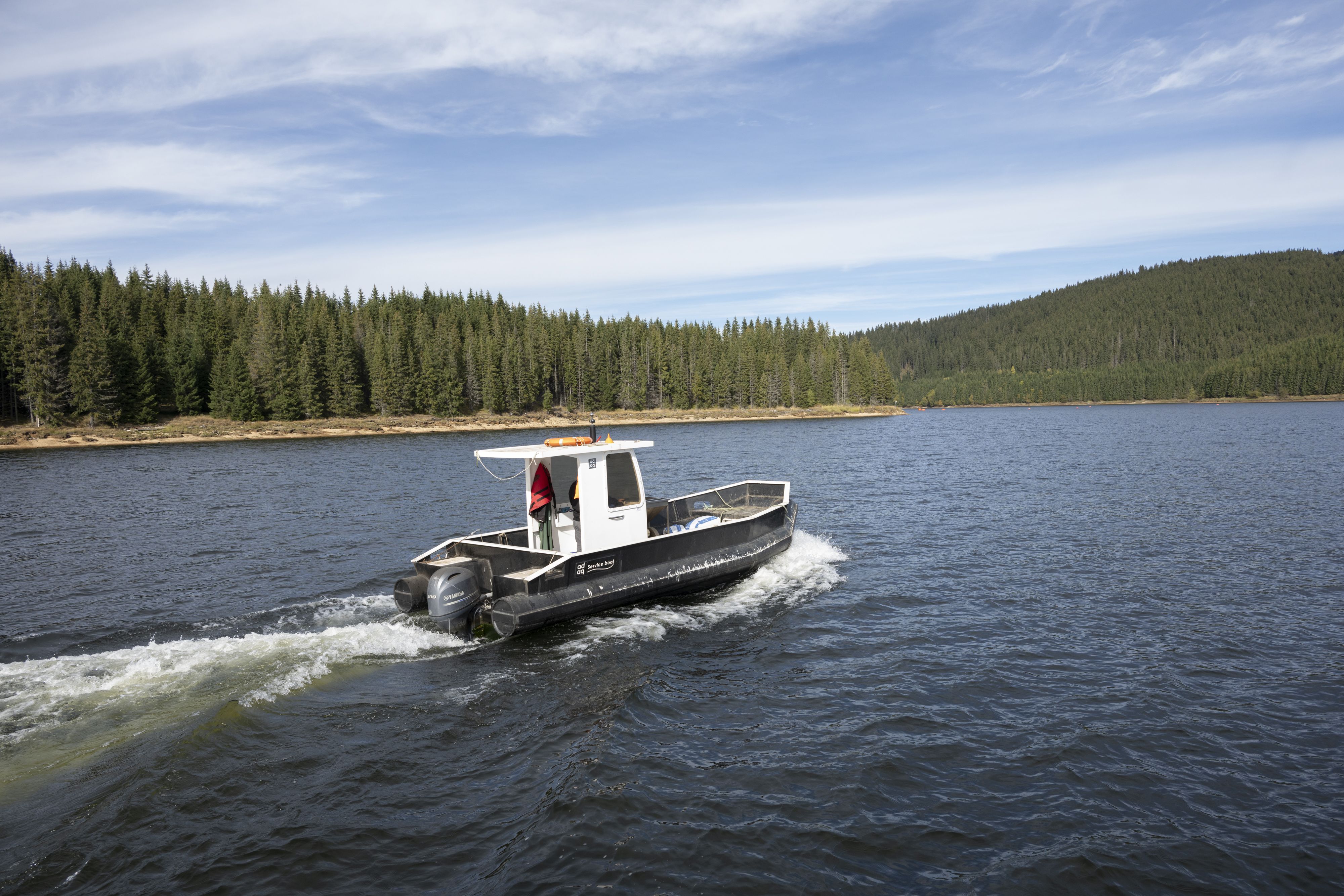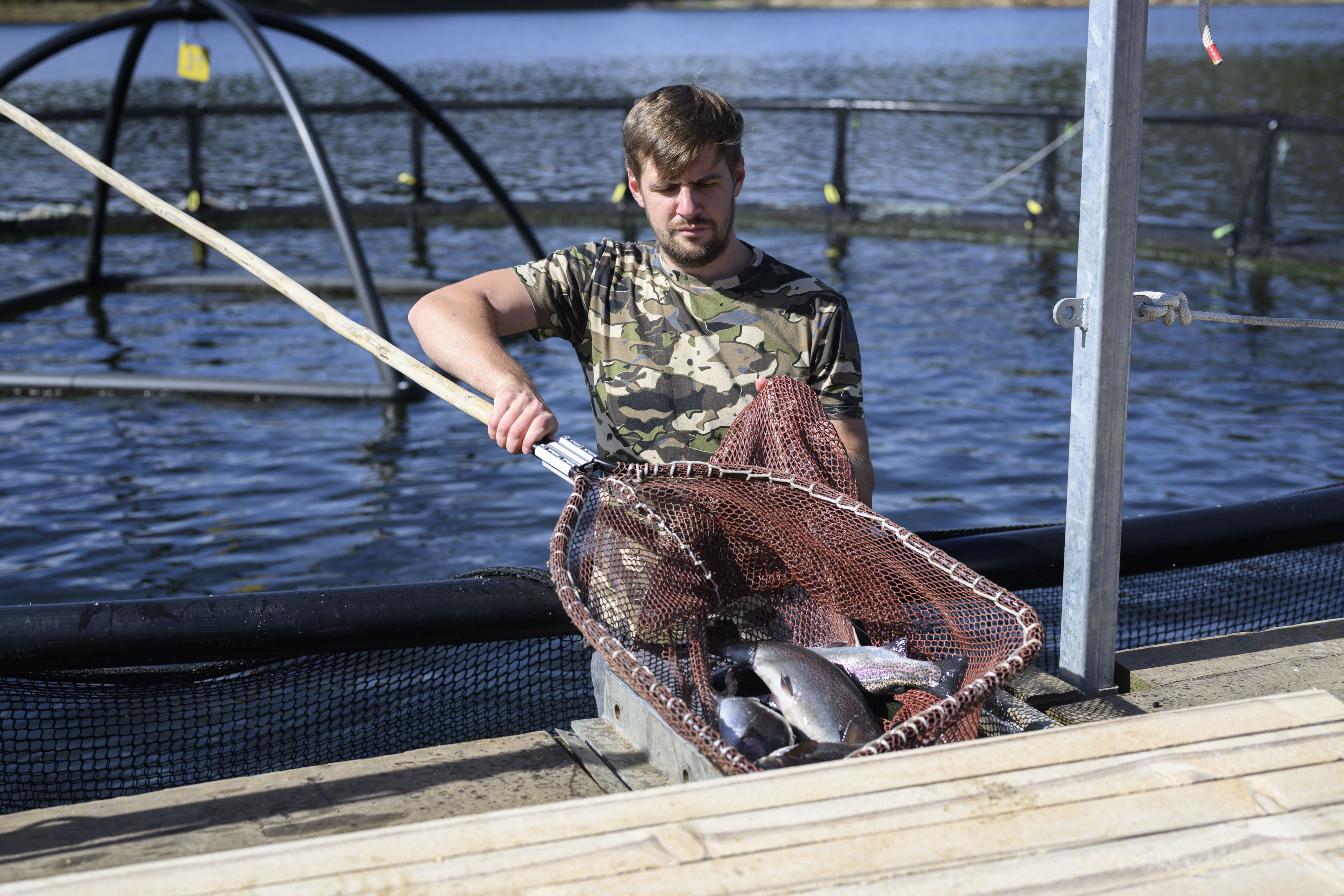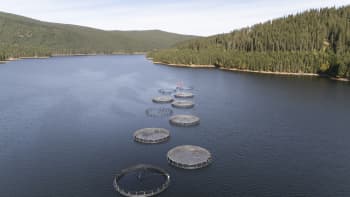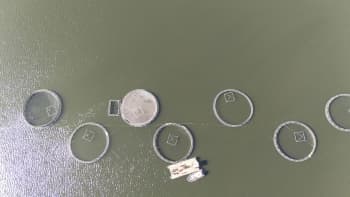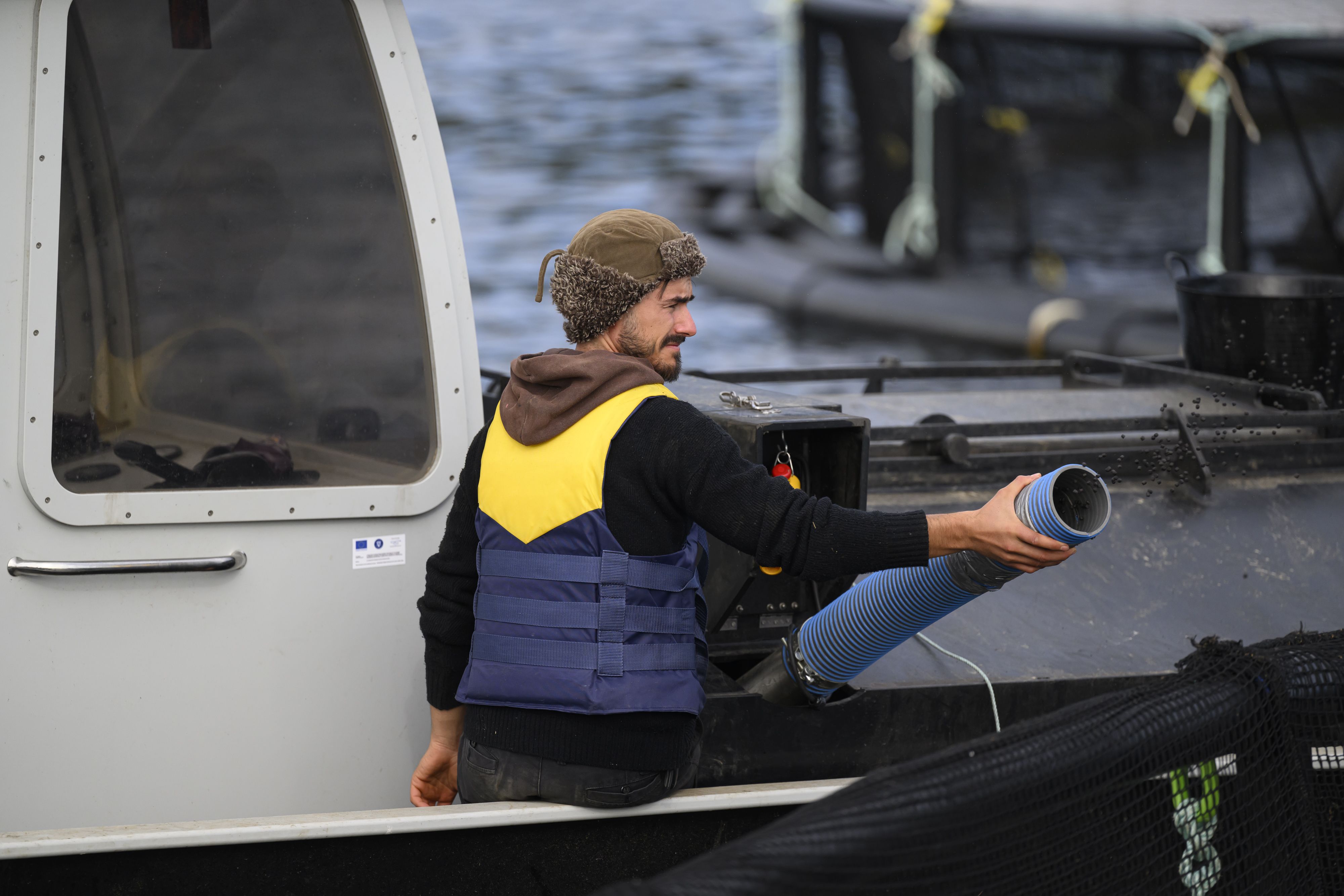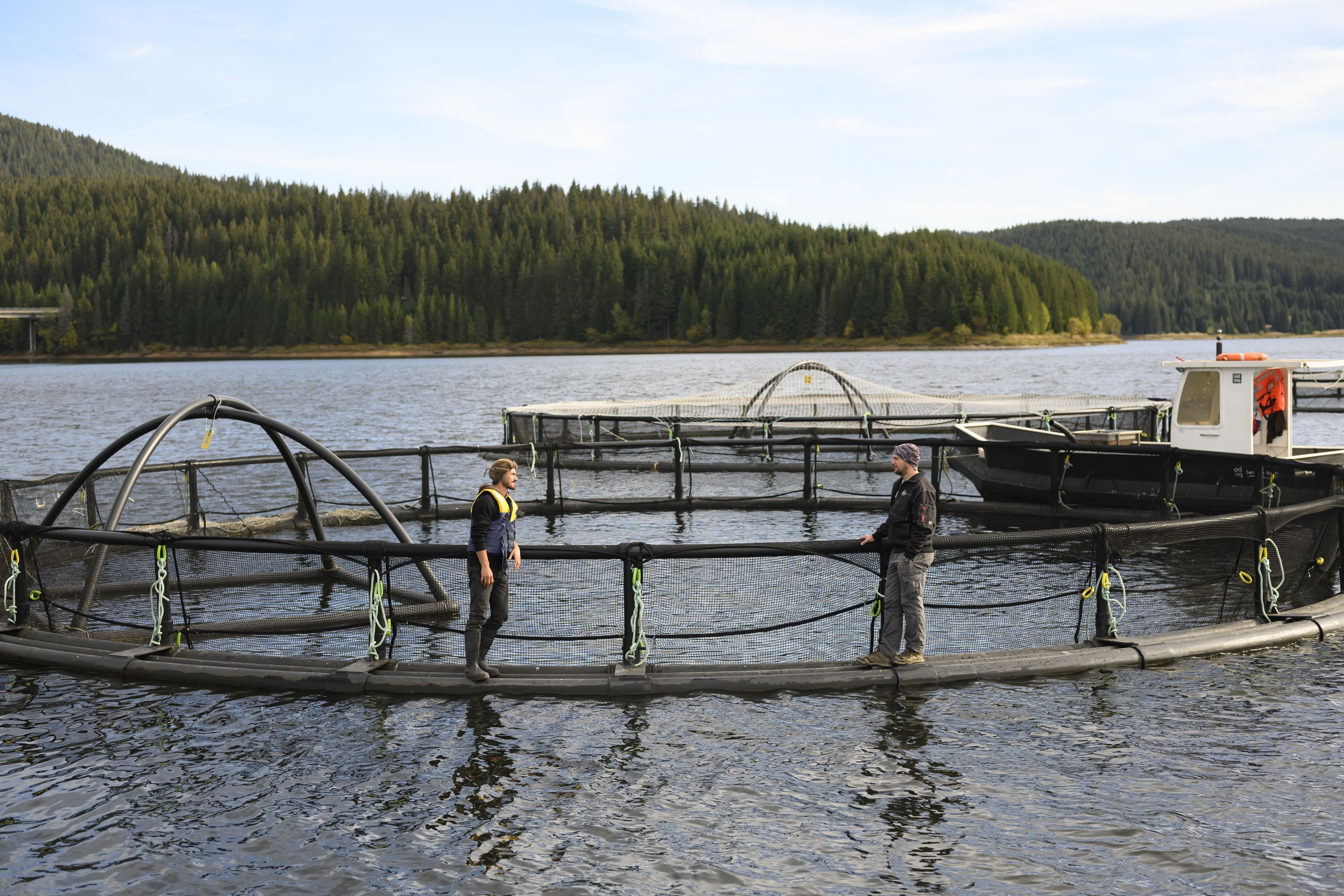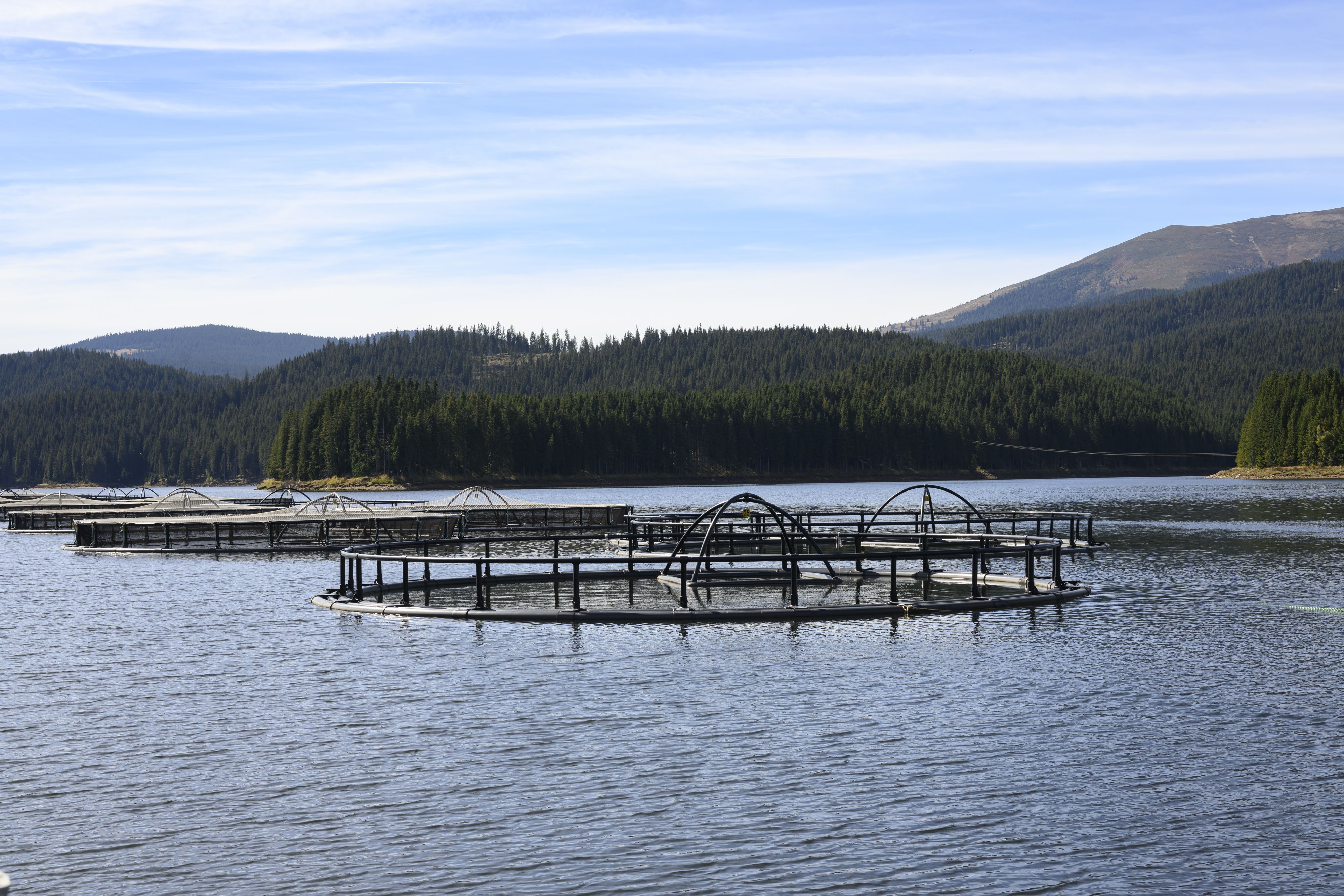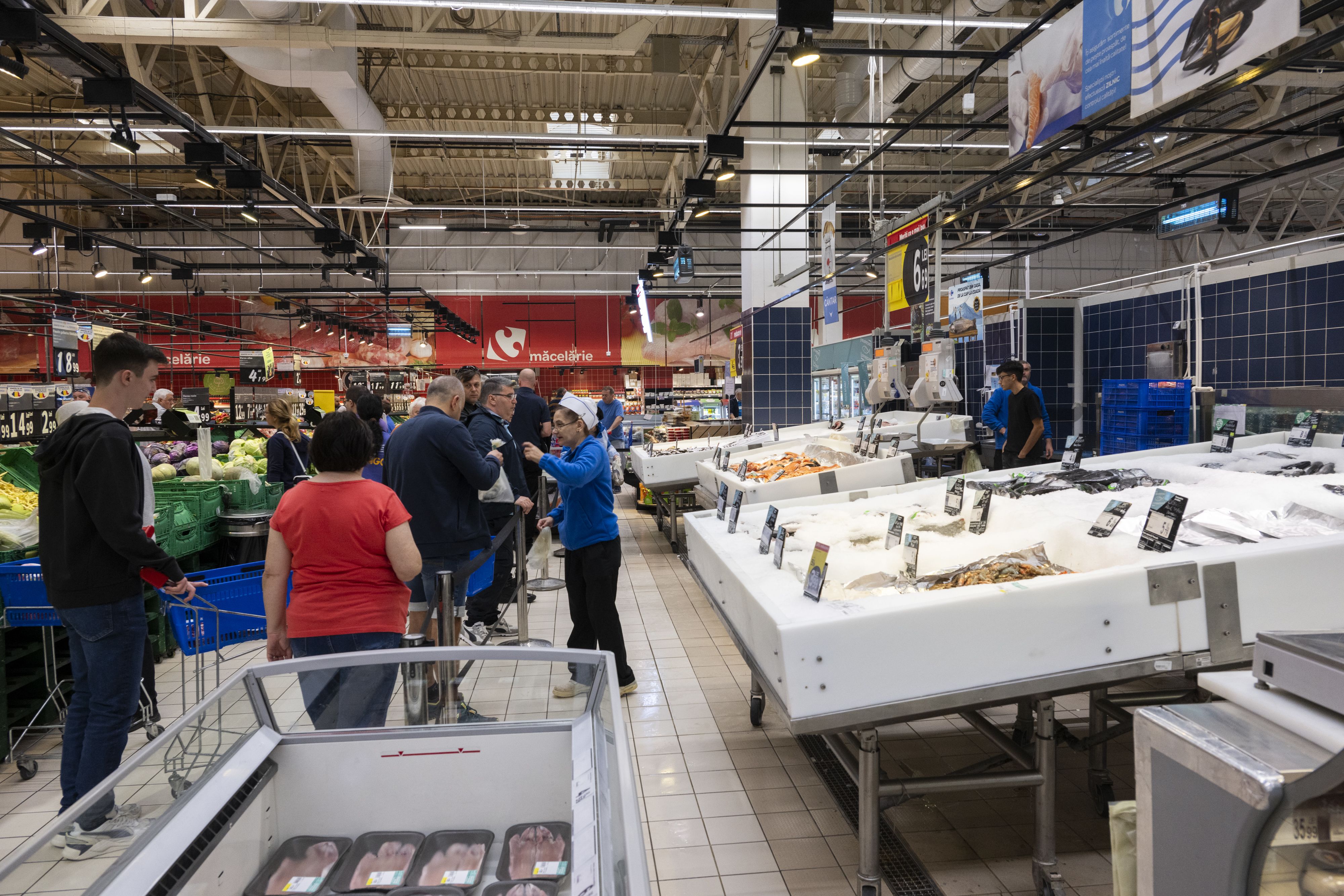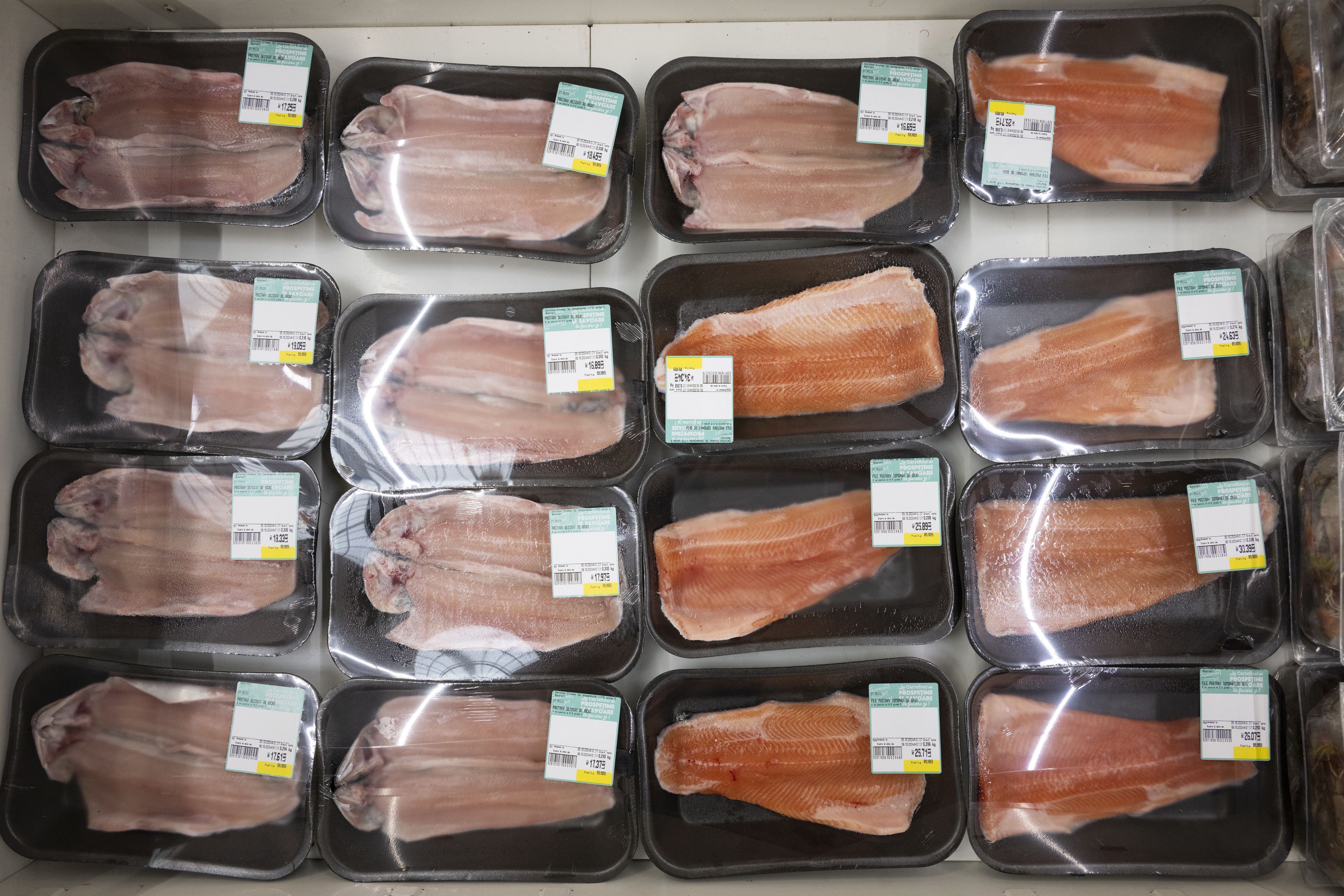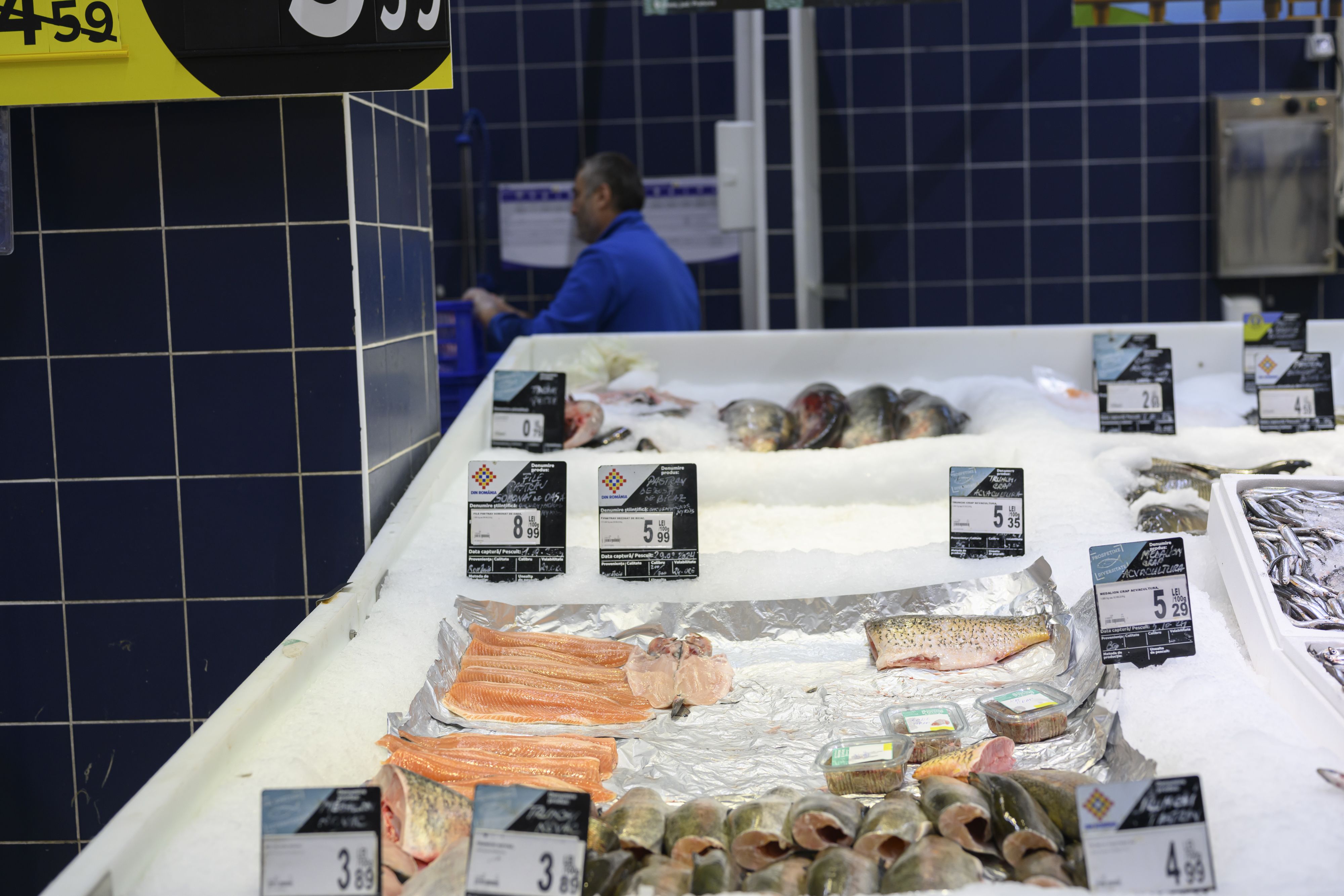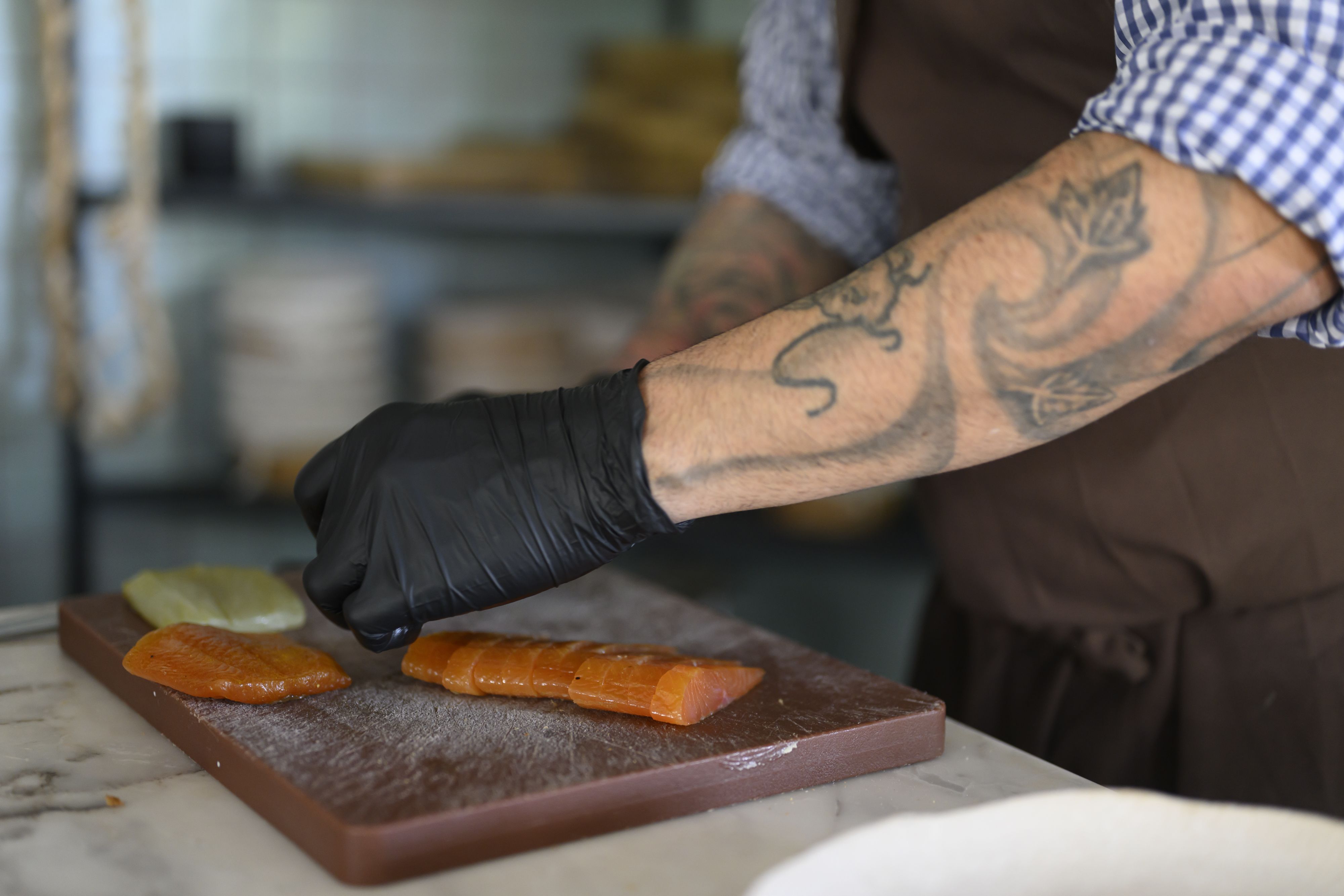Romania’s Bold Blue Future
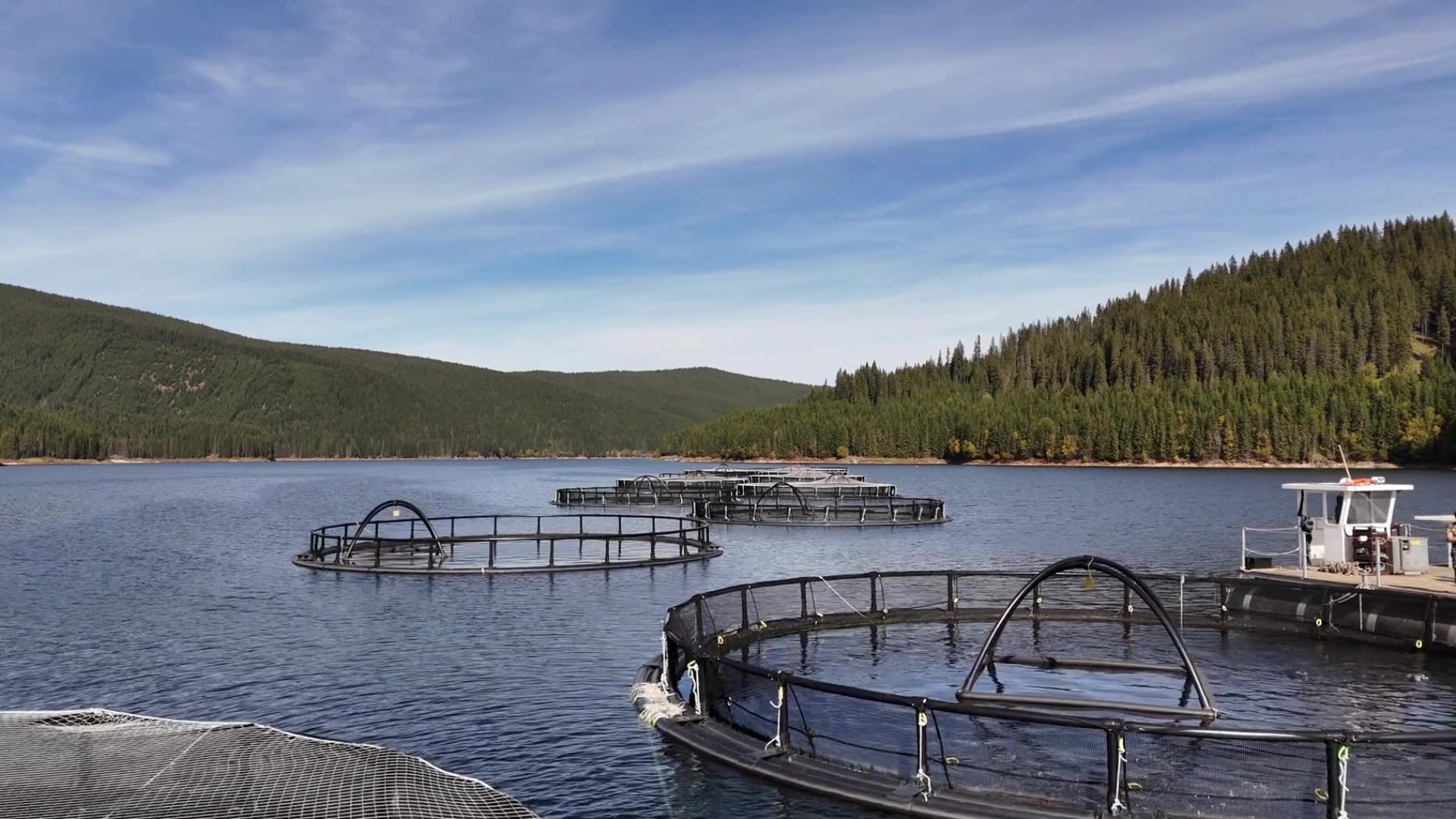
On the border between Sibiu and Alba Counties in central Romania, with only a monastery for company, the mirror-like waters of Oasa Lake reflect the blue skies above. The echoing silence of the surrounding landscape is broken only by the occasional flop of a rainbow trout breaking the skin of the water before returning to the comfort of the lake.
Nestled within the Danube River basin, Romania boasts an abundance of freshwater resources but issues around water pollution, unpredictable rainfall, prolonged droughts and water management challenges have been an ongoing concern.
A worker heads out to the fishery cages in Oasa Lake.
A worker heads out to the fishery cages in Oasa Lake.
This is one of the reasons why George Ionescu-Vitzu, a fish farmer since 2014, has cofounded a fishery cooperative which puts sustainability at its heart. “For our businesses to be truly successful, we must focus on farming healthy fish within a healthy natural environment” he says.
A worker shows a selection of rainbow trout from the fishery.
A worker shows a selection of rainbow trout from the fishery.
These same values underpin an emerging class of financial services, Blue Finance, which supports industrial production that prioritizes the preservation of water resources and environments. Banca Transilvania SA, the largest bank in Romania and a pioneer in this field, has provided key funding to Pastravul din Tara Ta, the cooperative member at Oasa Lake.
With support from Banca Transilvania and the EU, the cooperative has developed a sustainable, market-leading strategy, elevated its operating standards, and influenced the broader industry.
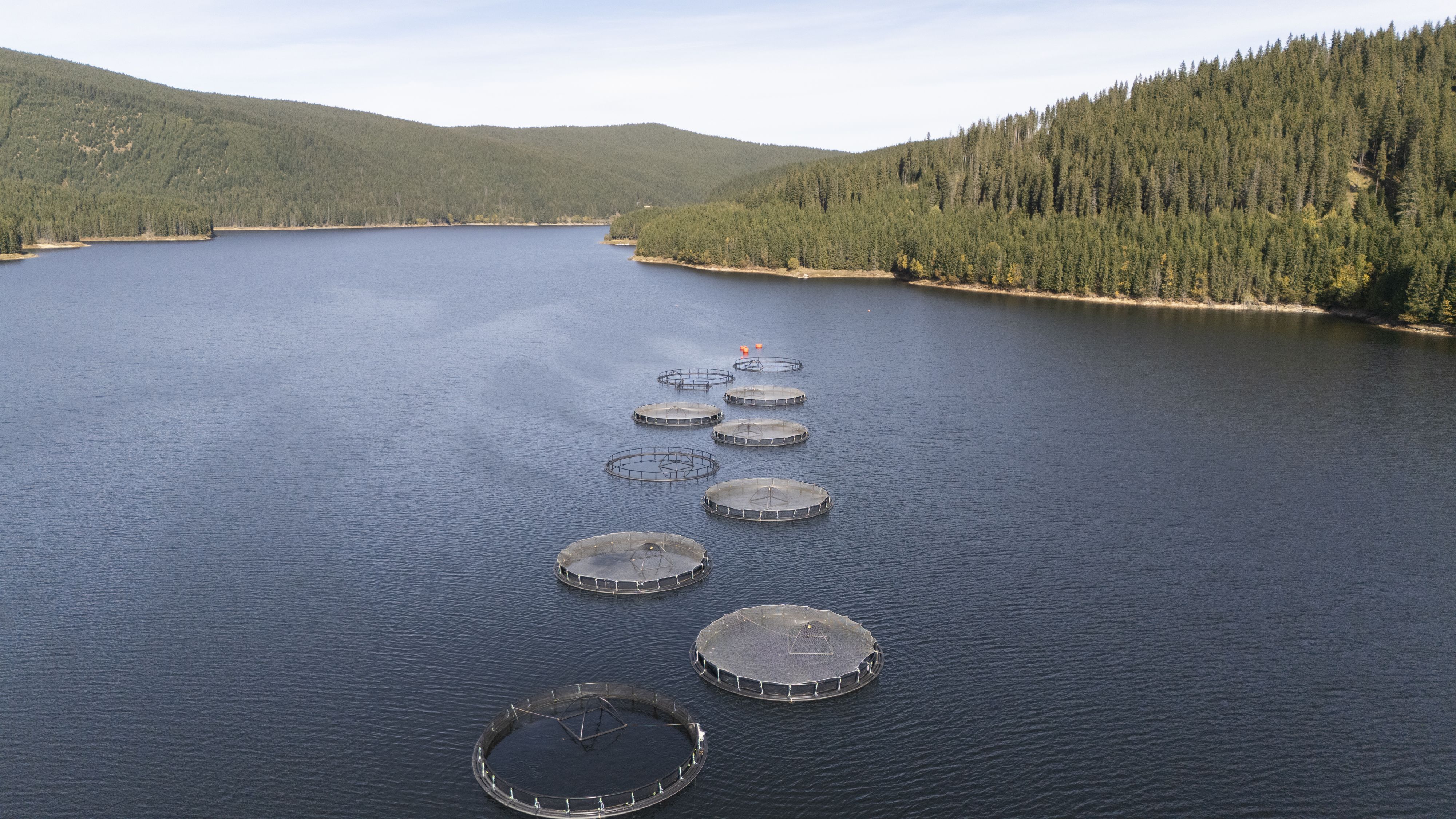
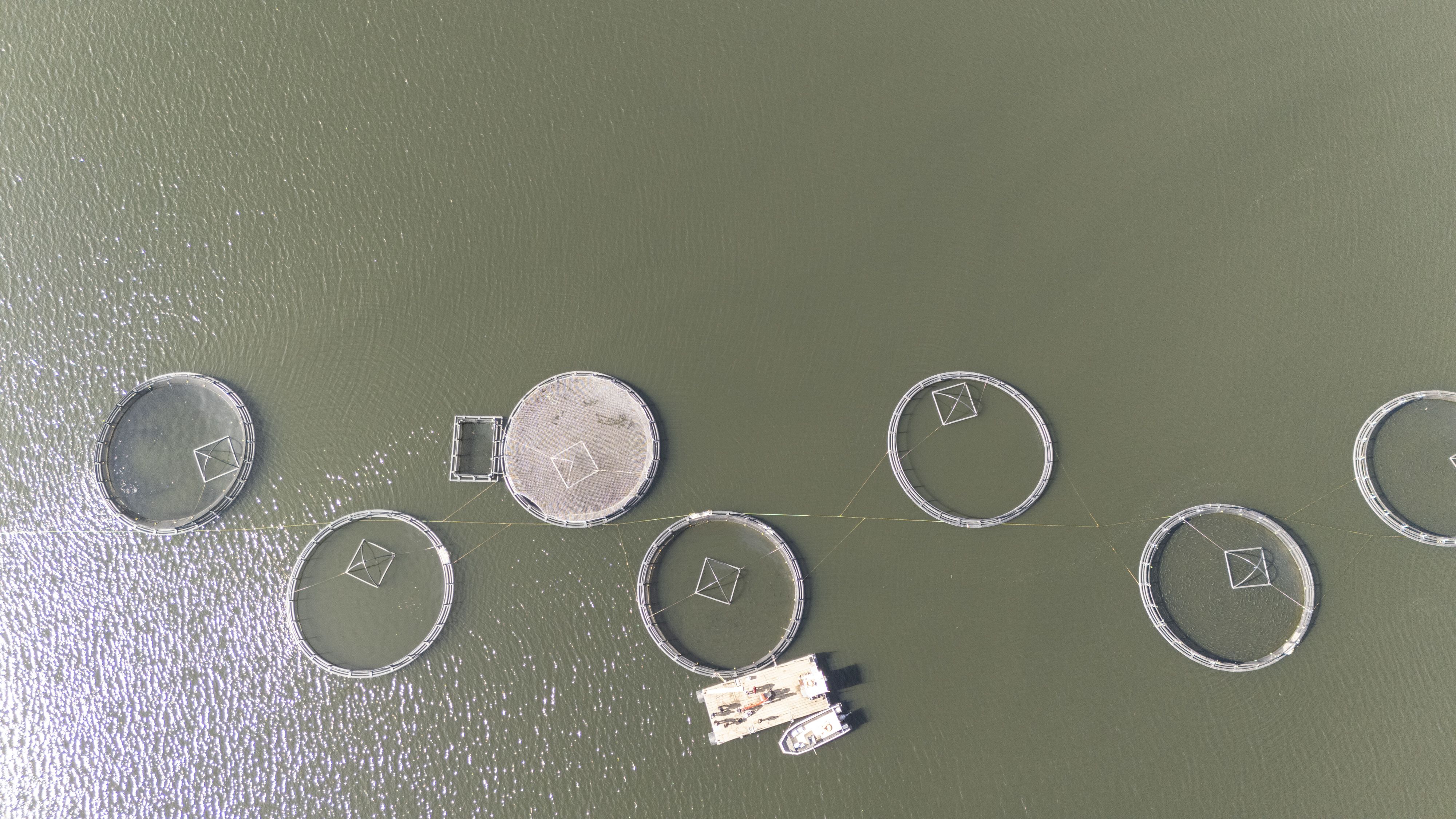
Testing the waters
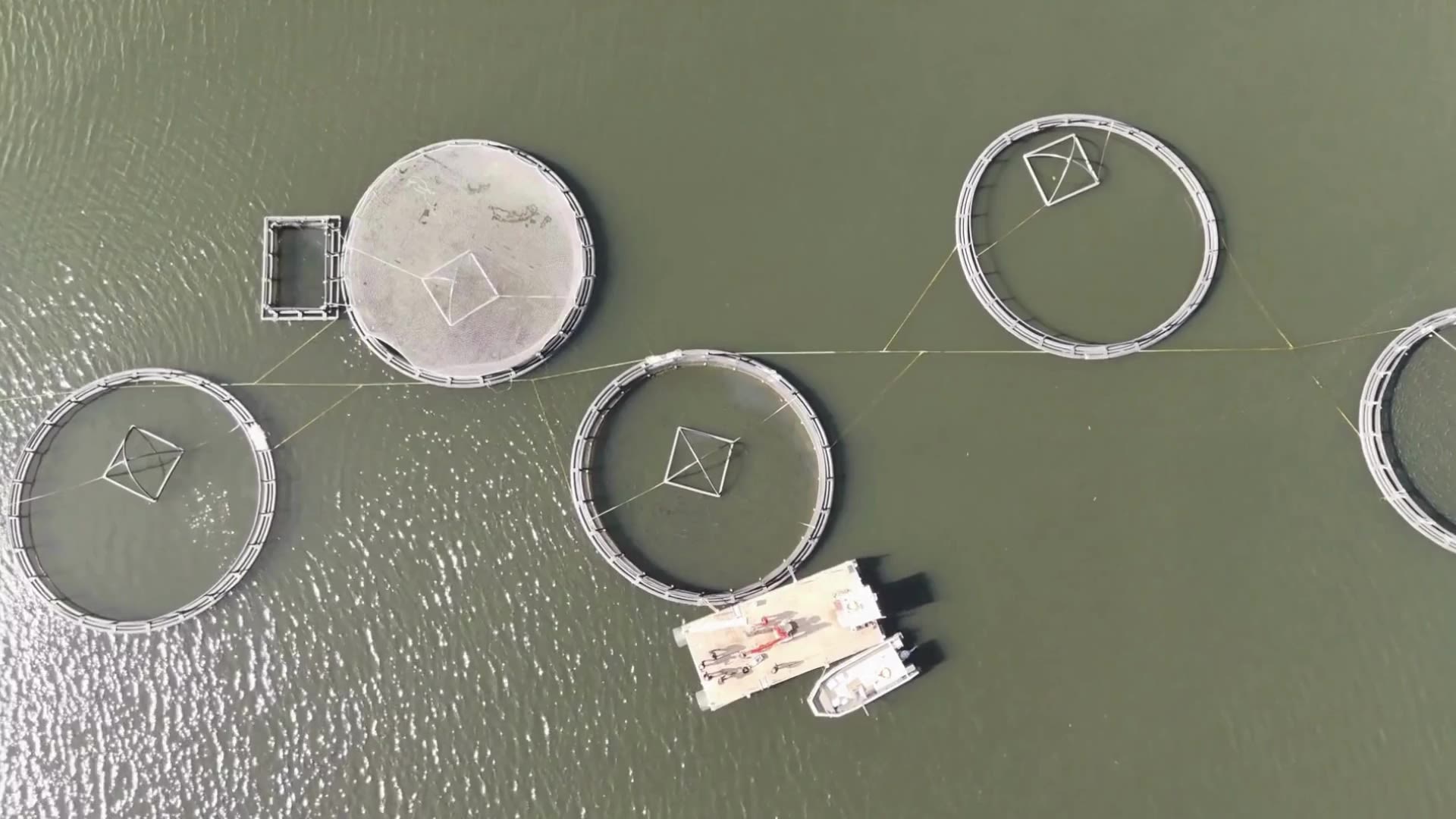
Romania’s water supply issues are bound within a complex web of interlocking challenges. With pressures coming from agriculture, industry, and disrupted river systems, and only 57% of the country’s population connected to a public water supply, the lowest rate in the EU, developing sustainable use strategies for the country’s water resources is of high importance.
Climate change amplifies these issues by bringing unpredictable rainfall and prolonged droughts that often strain water availability and creating a pressing need for long-term solutions.
“Improving water quality in Romania requires a mix of ecological restoration, policy enforcement, and public engagement. Stronger policy enforcement is essential to ensure industries comply with water guidelines and to support sustainable farming practices,” says Mara Nilca, Freshwater Expert at WWF Romania.
By embracing this sustainable approach, the private sector and Blue Finance can help facilitate the transition to a blue water future in the country. Nilca states that by “embracing water stewardship, companies can take proactive steps to reduce water use, minimize pollution, and contribute to the restoration of water systems they rely on.”
The cooperative aims to farm high-quality fish in a natural environment.
The cooperative aims to farm high-quality fish in a natural environment.
By limiting the number of cages, Pastravul has been able to protect the quality of water in the lake.
By limiting the number of cages, Pastravul has been able to protect the quality of water in the lake.
Blue Finance in Central and Eastern Europe
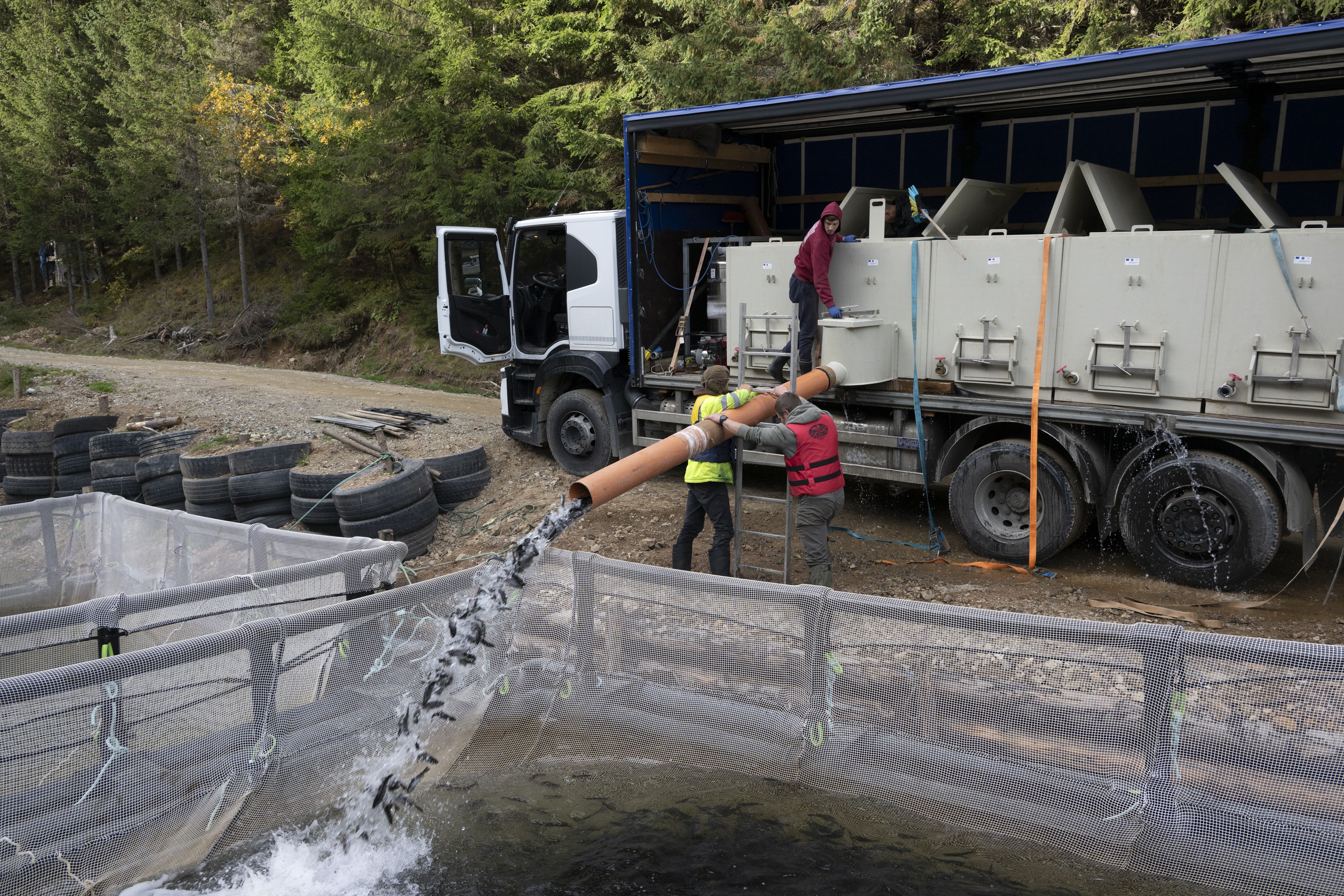
By utilizing financial instruments, such as blue bonds and loans, banks and financial institutions can mobilize the potential of the private sector to unlock trillions of dollars for projects which can become a key pillar in preserving and growing clean water resources.
The top of the range Italian cages represent the cutting-edge of sustainable fishery technology.
The top of the range Italian cages represent the cutting-edge of sustainable fishery technology.
“For Romania, encouraging economic growth whilst protecting its natural resources, including water quality and availability, is a major challenge. Blue finance can be a key source of funding to meet this and support the transition to a sustainable, circular economy,” says Vittorio Di Bello, IFC's Regional Industry Director for Financial Institutions in Europe and Latin America and the Caribbean.
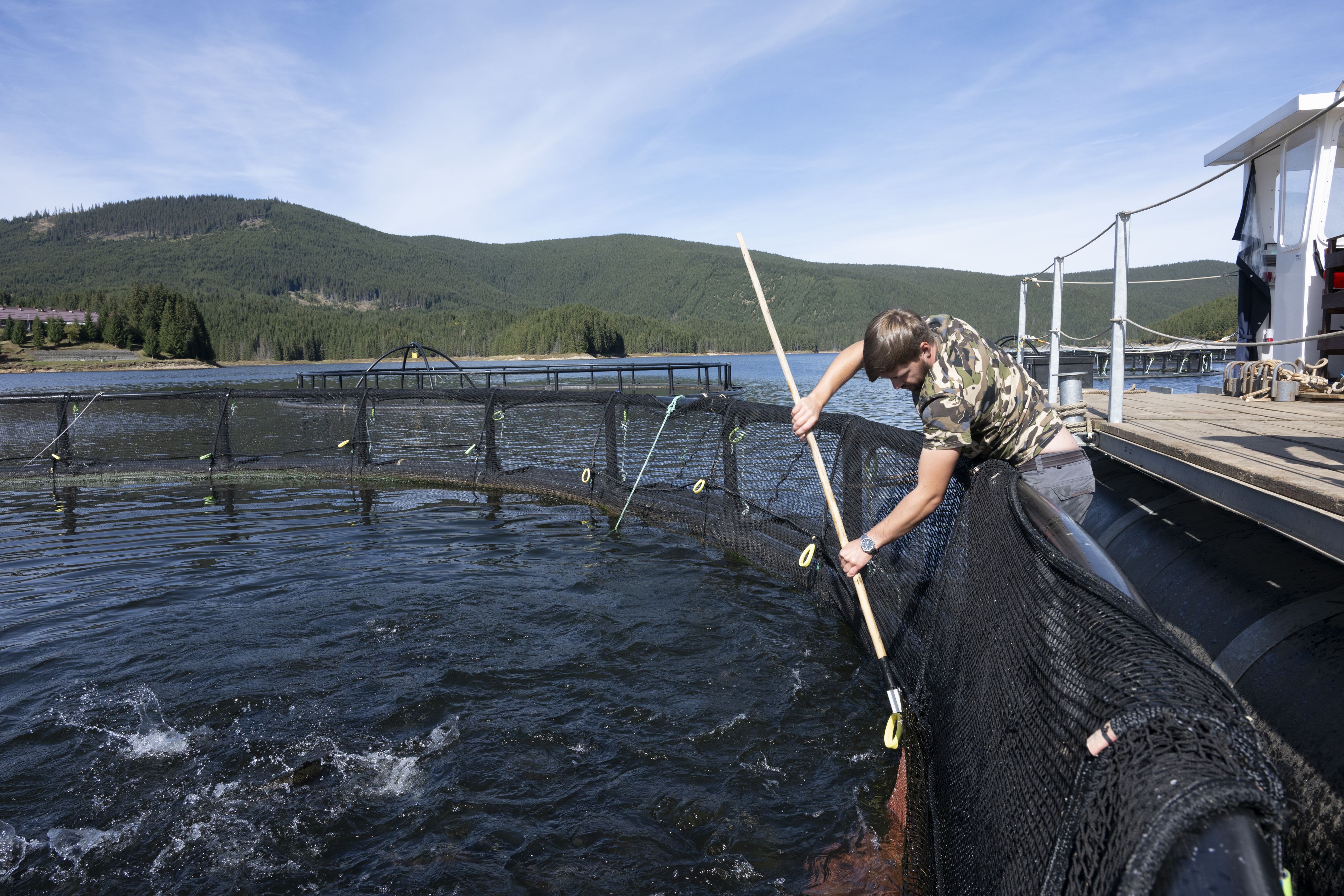
In 2022, IFC issued the first blue financing loan in Central and Eastern Europe. The landmark €100 million loan was provided to Banca Transilvania to improve water management practices including sustainable manufacturing, tourism, fishing, sustainable agricultural irrigation, and contributing to the sustainability of the ocean and freshwater resources.
“For Banca Transilvania, being a pioneer in blue financing has allowed us to focus on reducing the impact of farming and plastics on water quality and raise awareness amongst small and medium sized businesses in the country who use or are impacted by scarcity issues” says Crymhylde Galos, Deputy Manager EU Programmes and Green Lending at Banca Transilvania.
Businesses such as Pastravul are monitored throughout the length of the loan ensuring that Environmental, Social, and Governance standards are maintained.
Becoming a pioneer in this sector is one of the fruits of Banca Transilvania’s more than 20-year relationship with IFC. Spanning over 16 investments, the relationship has seen them grow from a small regional bank to the largest bank in the country, making them the ideal partner to introduce Blue Finance to Central and Eastern Europe.
“Thanks to IFC’s support we have been able to introduce offer blue finance to our clients to encourage economic growth while prioritizing the protection of our precious natural spaces in Romania,” says Ömer Tetik, Chief Executive Officer of Banca Transilvania.
As with any nascent sector, to ensure even and coordinated growth, guidelines are required. In 2022, IFC published the Guidelines for Blue Finance which have set global standards, provided advice on blue project eligibility criteria, and encouraged other institutions to embrace further investments that protect global water resources.
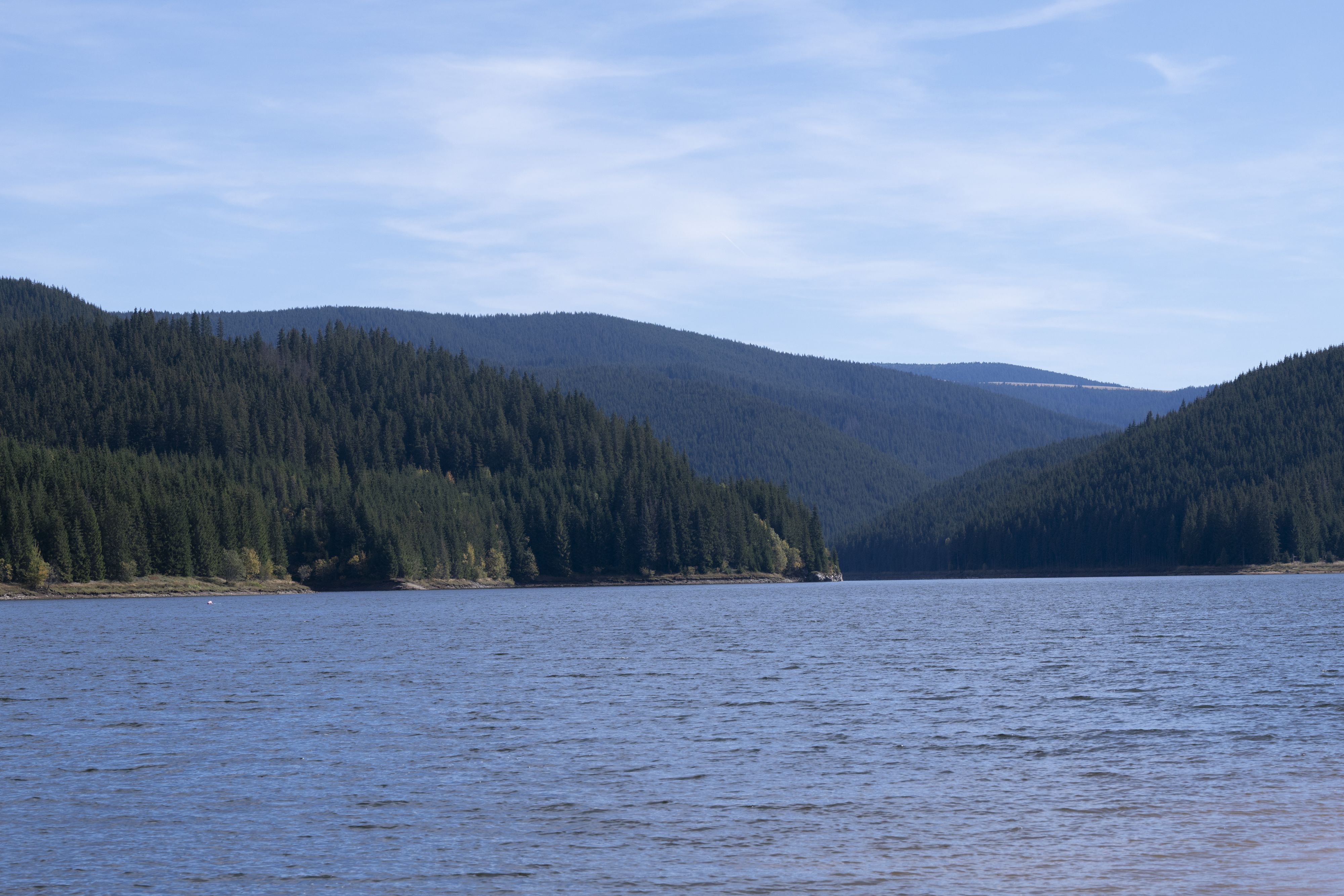
From farm to fork
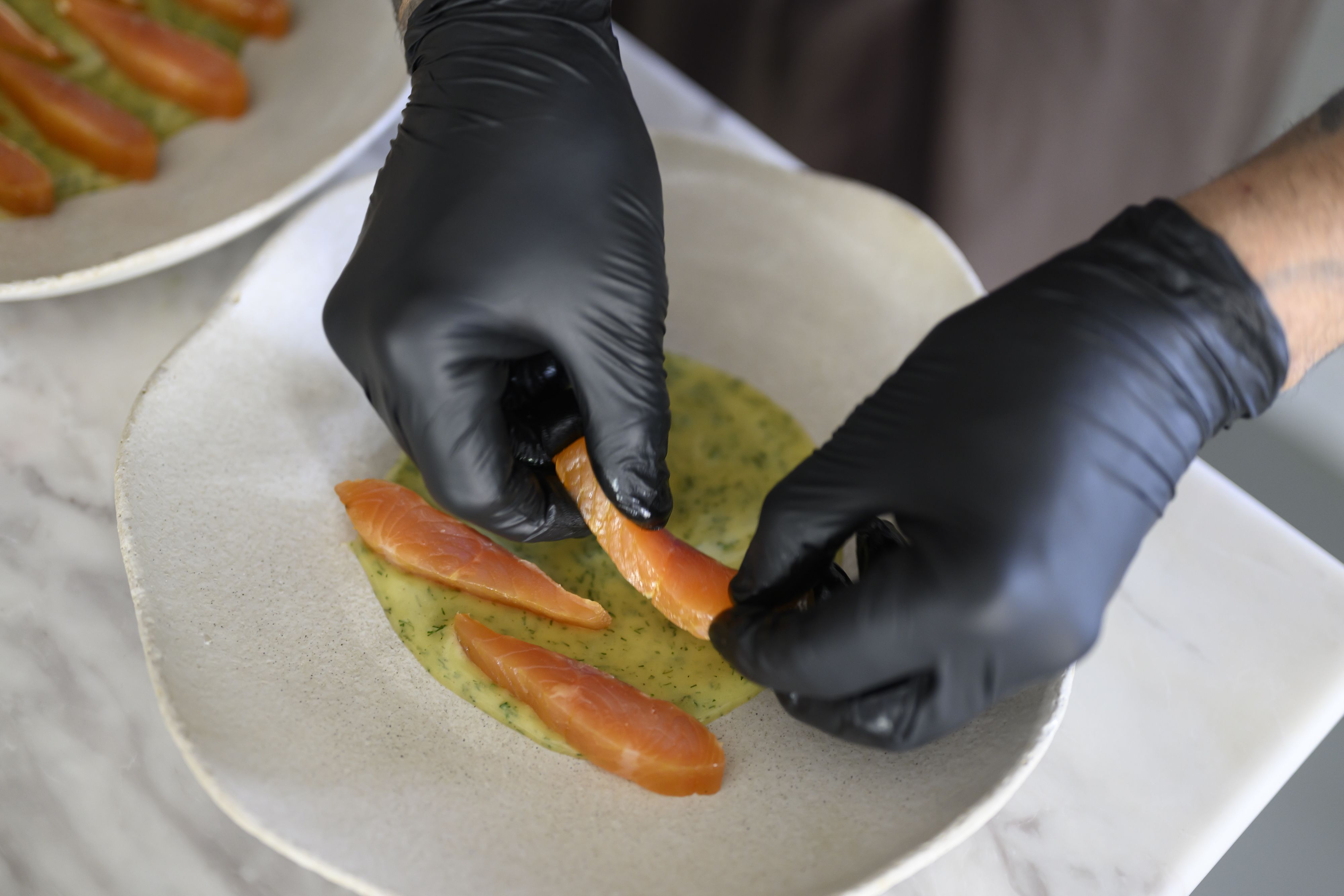
Back at Oasa Lake, Ionescu-Vitzu and Vasile Todosia, founding members of the cooperative, are all too familiar with the challenges that come with sustinable water use. For him and the other members of the fisheries cooperative, the blue financing provided to them by Banca Transilvania has allowed them to pusue their philosophy of prioritizing sustainability above profits, the results of which are reflected in the shimmering Oasa Lake.
The mirror like surface, contains black circular loops which are the surface level of fishery cages, imported from Italy, which represent the cutting-edge of sustainable fishery technology, and extend eight meters down into the lake.
The cages are owned by the growing Pastravul fishery business which is one of 30-35 farms who are members of the cooperative. Within this forum, the principles of sustainability are held sacrosanct, and standards and quality levels are set and maintained across the group. Their philosophy follows two key principles, farming high-quality fish in a natural environment which is minimally affected by that process.
Key to achieving this is their high-quality equipment, the top of the range Italian cages represent the cutting-edge of sustainable fishery technology. The farm also has the capacity to produce 600 tons of fish annually, but production remains around 450, to ensure that the environment and the fish experience as little stress as possible.
By limiting the number of cages in the lake, using the highest quality equipment, and prioritizing maintenance and upkeep, Pastravul has been able to protect the quality of water in the lake while also producing high quality fish.
This high quality is no accident, the rainbow trout farmed in the lake follows a carefully designed in-house process which supports the fish from eggs to juveniles to fully grown within 9-15 months.
By following a sustainable, stress-free farming process, Pastravul has been able to redefine what is considered the ideal dimensions of farmed rainbow trout. Historical overexploitation has resulted in the market accepting a mature trout at 250g, but the Pastravul cooperative has brought this standard up to 1-1.5kg, close to what is produced in other EU fisheries.
Sustainability also underlies their approach to market delivery. All fish produced here in Oasa are sold to the Carrefour supermarket chain, entirely for the local Romanian market. This is significant for a country with a €1-billion market for fish, of which only a fraction is produced locally. The remainder must be exported from international farms, placing a higher carbon cost on the environment to both transport and store the fish from far-flung locations.
For Samuel Le Torriellec, better known as Chef Samuel in his renowned Bucharest restaurant Le Petit Paris, the quality of the fish produced by Pastravul is what makes them exceptional and a welcome addition to his fine dining menu. By working with chefs such as Samuel to promote the variety of uses for high quality trout, the cooperative hopes to see the fish become more readily adopted into the lives of Romanians.
Ionescu-Vitzu and the other members of the cooperative, see all future successes as framed through the lens of Blue Finance.
Only a fraction of Romania's €1-billion market for fish is produced locally.
Only a fraction of Romania's €1-billion market for fish is produced locally.
Locally produced fish place a lower carbon cost on the environment.
Locally produced fish place a lower carbon cost on the environment.
All fish produced in Oasa are sold to the Carrefour supermarket chain, entirely for the local Romanian market.
All fish produced in Oasa are sold to the Carrefour supermarket chain, entirely for the local Romanian market.
The quality of the fish produced by Pastravul is what makes them exceptional.
The quality of the fish produced by Pastravul is what makes them exceptional.
A chef in the renowned Bucharest restaurant Le Petit Paris.
A chef in the renowned Bucharest restaurant Le Petit Paris.
“Each stage of our process, from the farm, to delivery, to the fork must work in harmony with the environment. Preservation is what is most important to us.”
George Ionescu-Vitzu, member of the fisheries cooperative
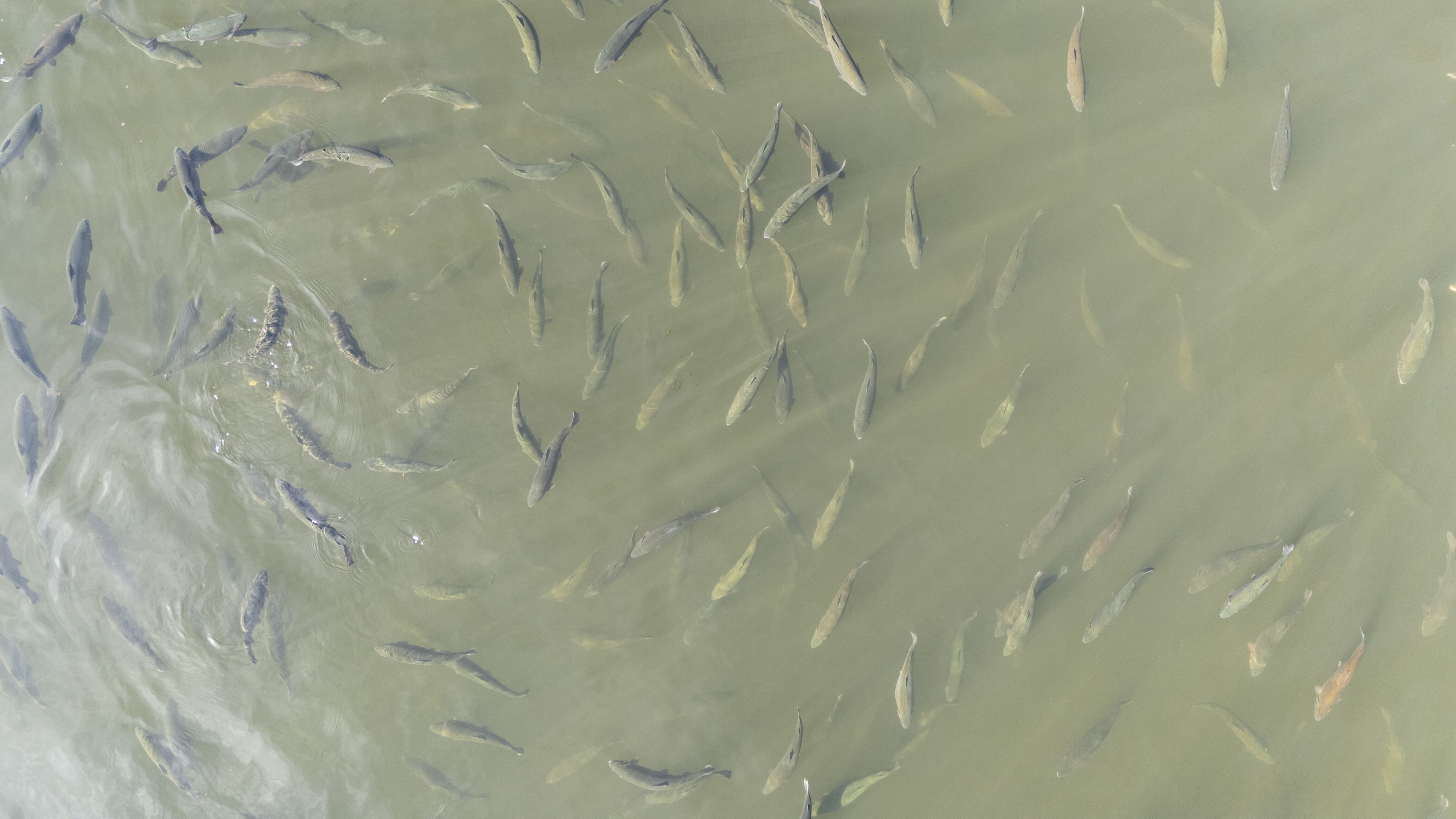
Published in November 2024
Similar Stories
IFC at COP29
As part of the World Bank Group delegation, IFC will showcase its efforts to accelerate the transition to low-carbon, resilient and inclusive growth in emerging markets.
The Ripple Effect of Saving Water
How blue finance is helping the private sector in Türkiye to relieve the pressure of water scarcity.
São Paulo’s Pinheiros River Clean-up
Restoring dignity and reviving dreams lost to previous generations
